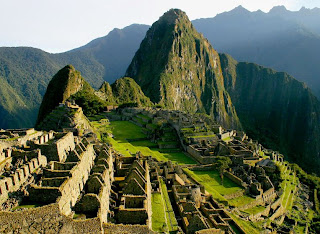Prinoner's Dilemma is an excelent potrayal of two types of people: the ambitious and the altruistic ones. The game consists of two players. There are five rounds where each player decides either to cooperate or to defect. When both players cooperate each other, both win 300 points. When one defects and the other one cooperates, the one that defects ends up winning 500 points and the one that cooperated wins none. Finally, when both defect each other, no one wins points.
 At the end of each round, the ambitious and the altruistic players are evident. In my case, I felt really disappointed because my partner betrayed me. We both agreed to cooperate each other every single time, and I trusted him. After three rounds of cooperating each other, he defected me in the fourth one. This is very interesting because I thought of defecting him that same round, but I changed my mind because I thought he was going to keep his word. Unfortunately, he broke our agreement to benefit himself. At the last round, we both defected each other. He knew I was going to defect him because he noticed I was very mad. It is important to analyze Connor's ambitious temptation. We both felt tempted to defect each other, but Connor's temptation was more intense and he just went for it. I think we were both altruistic at first, but at the last two rounds, neither of us trusted each other. After the game, Connor told me defected me because he thought I was going to defect him. If this is true, this means that Connor didn't defect me in order to gain more points, but because he trusted in his instincts.
At the end of each round, the ambitious and the altruistic players are evident. In my case, I felt really disappointed because my partner betrayed me. We both agreed to cooperate each other every single time, and I trusted him. After three rounds of cooperating each other, he defected me in the fourth one. This is very interesting because I thought of defecting him that same round, but I changed my mind because I thought he was going to keep his word. Unfortunately, he broke our agreement to benefit himself. At the last round, we both defected each other. He knew I was going to defect him because he noticed I was very mad. It is important to analyze Connor's ambitious temptation. We both felt tempted to defect each other, but Connor's temptation was more intense and he just went for it. I think we were both altruistic at first, but at the last two rounds, neither of us trusted each other. After the game, Connor told me defected me because he thought I was going to defect him. If this is true, this means that Connor didn't defect me in order to gain more points, but because he trusted in his instincts."If we translate the colloquial meaning of "nice guy" into Darwinism equivalent, a nice guy is an individual that assists other members of its species, at its own expense, to pass its genes on to the next generation. Nice guys, then, seem bound to decrease in numbers: niceness dies a Darwinism death." (202) In this case, I was the nice guy who lost (died). For me, this model is very coherent because it portrays the different interactions between certain kinds of people, which are actually true. My defeat actually portrays my personality. I obviously didn't want to lose, neither did I want Connor to lose. When I promise something I keep my word. This is exactly what happened in the game until Connor broke the agreement.
Sadly, I am the nice guy, caring of my own species. The bad part is that most people aren't nice people and they only care about themselves. In this world, I am the one who loses.
























